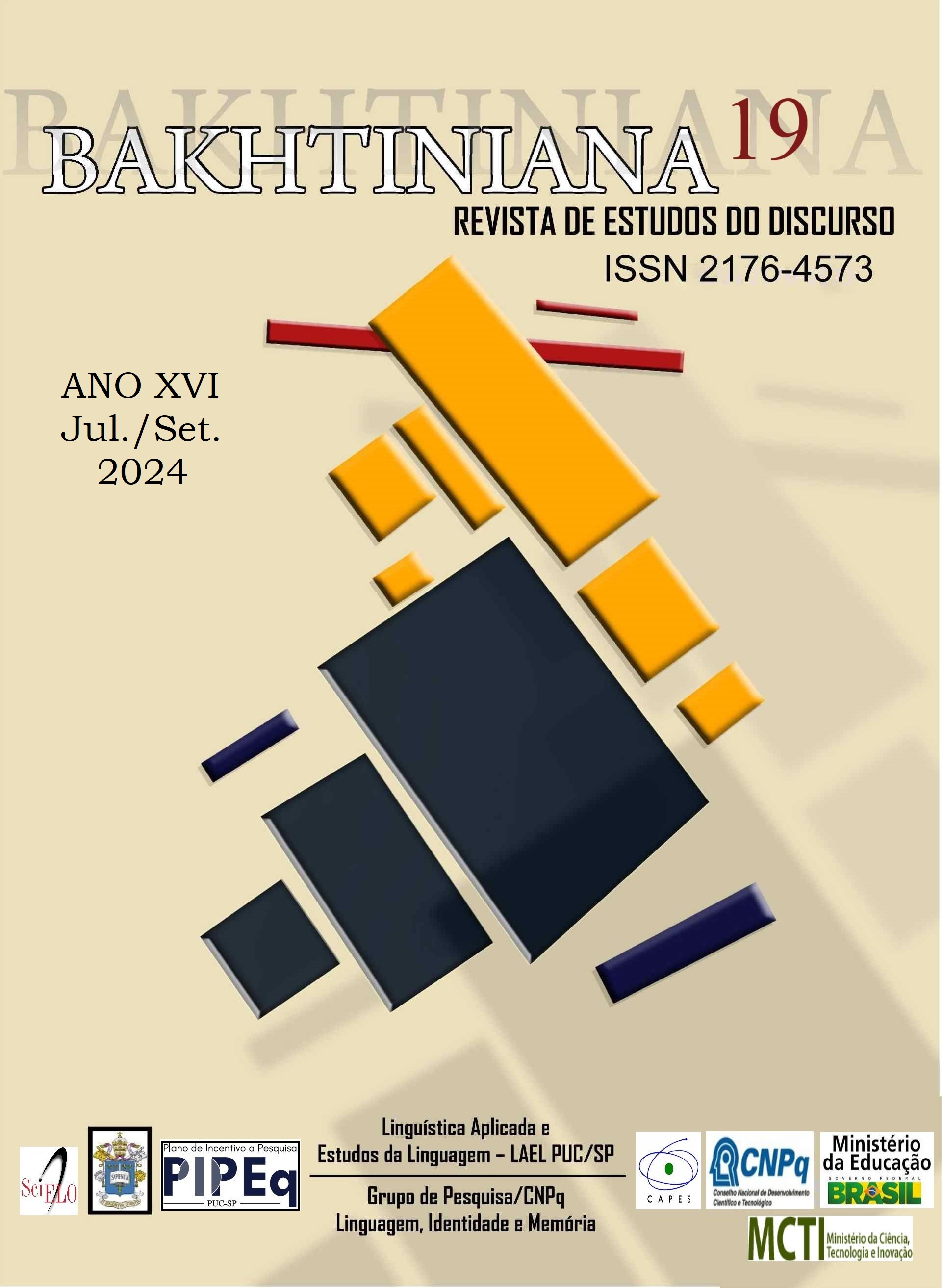(Re)Approaching the Education of Young Readers: Formats, Convergences, and Transpositions Associated with Literature
Keywords:
Reading, Young adult literature, Convergence, Education of readersAbstract
This study is based on statistical data about reading in the lives of young people aged 11 to 17 years old. It addresses how one can (re)approach the education of readers from an understanding of what reading literature is all about in the 21st century. It discusses the change of format of reading from the book to the screen, but not from the perspective of exclusion or with the intention of arguing that one mode of access is better than another. It stresses the importance of mediating reading with an openness to the different media and forms that have been offered by digital information and communication technologies. Reflections are made to conceptualize literature in the 21st century and then some examples are provided of how literature converges from the written text to other media and vice versa, which suggests that young people are reading in different ways and this fact can be used to enhance the process of educating literary readers.
References
BAJOUR, Cecilia. Ouvir nas entrelinhas: o valor da escuta nas práticas de leitura. Tradução de Alexandre Morales. São Paulo: Editora Pulo do Gato, 2012.
BAKHTIN, Mikhail. Os gêneros do discurso. Tradução Paulo Bezerra. São Paulo: Editora 34, 2016.
BAKHTIN, Mikhail. A ciência da literatura hoje (Resposta a uma pergunta da revista Novi Mir). In: BAKHTIN, Mikhail. Notas sobre literatura, cultura e ciências humanas. Tradução Paulo Bezerra. São Paulo: Editora 34, 2017.
BRUNS, Axel. Towards Produsage: Futures for User-led Content Production. In: International Conference on Cultural Attitudes Towards Technology and Communication, 5., 2006, Tartu. Proceeding of the 5th International Conference on Cultural Attitudes Towards Technology and Communication. Tartu: School of Information Technology, 2006. pp. 275-284.
CHARTIER, Roger. A aventura do livro: do leitor ao navegador: conversações com Jean Lebrun. Tradução de Reginaldo Carmello Corrêa de Moraes. São Paulo: Imprensa Oficial do Estado de São Paulo; São Paulo: Editora UNESP, 1998b.
CHARTIER, Roger. Cultura escrita, Literatura e História: conversas de Roger Chartier com Carlos Aguirre Anaya, Jesús Anaya Rosique, Daniel Goldin e Antonio Saborit. Tradução Ernani Rosa.Porto Alegre: Artmed, 2001.
CHARTIER, Roger. Livro, mundo digital e leituras: práticas e apropriações. Goiânia: Editora UFG, 2022.
CHARTIER, Roger. Post scriptum: Do codex à tela: as trajetórias do escrito. In: CHARTIER, Roger. A ordem dos livros: leitores, autores e bibliotecas na Europa entre os séculos XIV e XVIII. Tradução de Mary Del Priore. Brasília: Editora Universidade de Brasília, 1998a. p. 95-111.
CHARTIER, Roger. Roger Chartier fala sobre analfabetismo digital. Nova Escola, [s. l.], 1 maio 2013. Disponível em: https://novaescola.org.br/conteudo/1898/roger-chartier-fala-sobre-analfabetismo-digital. Acesso em: 28 out. 2023.
COSSON, Rildo. Círculos de leitura e letramento literário. São Paulo: Contexto, 2014.
DAYRELL, Juarez. O jovem como sujeito social. Revista Brasileira de Educação, Rio de Janeiro, n. 24, p. 40-52, 2003. Disponível em: https://doi.org/10.1590/S1413-24782003000300004. Acesso em: 09 out. 2023.
DOMINGOS, Ana Cláudia Munari. Hiperleitura e escrileitura: convergência digital, Harry Potter, cultura de fã. Porto Alegre: EDIPUCRS, 2015.
FAGUET, Émile. A arte de ler. Tradução de Roseli de Fátima Dias Almeida Barbosa. Campinas, SP: Kírion, 2021.
GREGORIN FILHO, José Nicolau. Literatura juvenil: adolescência, cultura e formação de leitores. São Paulo: Melhoramentos, 2011.
HAYLES, Nancy Katherine. Literatura eletrônica: novos horizontes para o literário. Tradução de Luciana Lhullier e Ricardo M. Buchweitz. São Paulo: Global, 2009.
INSTITUTO PRÓ-LIVRO. Retratos da leitura no Brasil: 5. ed. [S. l.]: IPL, 2020. 153 slides, color. Disponível em: https://www.prolivro.org.br/5a-edicao-de-retratos-da-leitura-no-brasil-2/a-pesquisa-5a-edicao/. Acesso em: 10 nov. 2023.
JENKINS, Henry. Cultura da convergência. Tradução de Susana L. de Alexandria. São Paulo: Aleph, 2009.
LAJOLO, Marisa. Literatura: ontem, hoje, amanhã. São Paulo: Editora Unesp, 2018.
LITERATURA sem preconceito [Entrevista com João Luis Ceccantini]. Letra A: o jornal do alfabetizador, Belo Horizonte, ano 6, n. 23, p. 12-14, ago./set. 2010. Disponível em: http://www.ceale.fae.ufmg.br/app/webroot/files/uploads/JLA/2010_JLA23.pdf. Acesso em: 09 out. 2023.
MELO, Camila Alves de. Bookstagram & BookTube: efeitos de condução da conduta leitora a partir dos compartilhamentos entre influenciadores literários e seus seguidores. 2022. Tese (Doutorado em Educação) – Faculdade de Educação, Universidade Federal do Rio Grande do Sul, Porto Alegre, 2022.
NIVEN, Jennifer. Por lugares incríveis. Tradução de Alexandra Esteche. 1. ed. São Paulo: Seguinte, 2015.
NÚCLEO DE INFORMAÇÃO E COORDENAÇÃO DO PONTO BR. Pesquisa sobre o uso das tecnologias de informação e comunicação nos domicílios brasileiros: TIC Domicílios 2022. São Paulo: Comitê Gestor da Internet no Brasil, 2023. Disponível em: https://cetic.br/pt/publicacao/pesquisa-sobre-o-uso-das-tecnologias-de-informacao-e-comunicacao-nos-domicilios-brasileiros-tic-domicilios-2022/. Acesso em: 10 nov. 2023.
PAULINO, Graça; COSSON, Rildo. Letramento literário: para viver a literatura dentro e fora da escola. In: ZILBERMAN, Regina; ROSING, Tânia (org.). Escola e literatura: velha crise, novas alternativas. São Paulo: Global, 2009. p. 61-79.
PENNAC, Daniel. Como um romance. Tradução de Leny Werneck. Rio de Janeiro: Rocco, 1993.
RÖSING, Tânia; RETTENMAIER, Miguel. Apresentação. In: HAYLES, Nancy Katherine. Literatura eletrônica: novos horizontes para o literário. Tradução de Luciana Lhullier e Ricardo M. Buchweitz. São Paulo: Global, 2009. p. 9-11.
SOARES, Magda. Ler, verbo transitivo. In: PAIVA, Aparecida et al. (org.). Leituras literárias: discursos transitivos. Belo Horizonte: Ceale; Autêntica, 2008. p. 29-36. [Coleção Literatura e Educação].
TOFFLER, Alvin. A terceira onda. Tradução de João Távoa. Rio de Janeiro: Record, 2001.
Downloads
Published
How to Cite
Issue
Section
License
Copyright (c) 2024 Bakhtiniana. Revista de Estudos do Discurso

This work is licensed under a Creative Commons Attribution 4.0 International License.
The authors grant the journal all copyrights relating to the work published. The concepts expressed in signed articles are absolute and exclusive responsibility of their authors.







